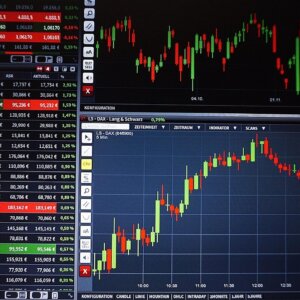Esports Tax is a term relating to tax that may be liable to those who participate in Esports (Electronic Sports). Esports refers to video games that are played competitively, often for financial gain. This area has been growing exponentially in recent years, and this trend is expected to continue. The top 100 players have all amassed winnings of over 1 million US dollars each. The largest of these is more than 7 million US dollars alone, with LoL (League of Legends) being one of the most widely known esport games.
With this increase in revenue comes increased interest from regulators. For UK tax residents, HMRC is taking a greater interest in esports. This interest comes not only from game winnings but also from sponsorship and streaming revenue, including donations.
As well as those who play games for rewards, those who stream games or provide tips on online platforms such as YouTube or Twitch are also liable for tax. This includes those under 16, and whilst National Insurance is not payable until you reach 16, income earned at any age is liable for tax, including those under 16.
Alexander & Co can advise clients on this fast-developing area of tax and ensure that esports players are tax compliant, only paying the correct amount of tax. For more information on this complex subject, please contact us to see how we can assist you.
Esports tax – an introduction
Usually, income from esports is declared on a self assessment tax return. There is a slight difference when esports players are part of a team (which is discussed separately below).
If you received or earned more than £1,000 (before deducting any items you can claim tax relief for) in a tax year, you will need to submit a self assessment tax return. (Unless you decide to create a limited company, where annual accounts will be required). This amount includes earnings from playing, sponsorship paid directly to you and donations received.
In instances where esports players fail to notify HMRC of their income, penalties and interest will become due. HMRC actively seeks to identify individuals who are not disclosing tax. This is achieved, in part, by analysing numerous worldwide data sources that HMRC has access to. Following this, individuals may receive a request for information. Failure to reply can lead to a formal tax investigation and more severe fines and penalties.
In recent years, the UK Government has put significant resources into analysing data to identify such individuals. Alongside esports gamers, this has also included property tax, crypto earnings and overseas income. It is likely that esports will be an area on which HMRC now focuses more. Professional advice is recommended here to ensure that individuals remain tax compliant. It is always better to rectify mistakes yourself, than face a formal HMRC enquiry.
Income from playing for teams
Where players participate in tournaments as teams, care is required to understand whether the remuneration received is classified as self employed income or employment income. This will depend upon the specifics of a contract, the obligations within it and other practical arrangements.
Whether an individual is employed or self employed will affect how they are paid and who is responsible for the payment of tax and national insurance. There are further complications if the team is deemed to be overseas or has players who are residents of or play in different territories. Often here, UK tax may need to be paid by the individual alongside tax in other countries.
Again, due to the complications here, professional advice is recommended. Especially as employment status is an area of focus for HMRC.
Esports income from tournament winnings
Esports tournaments have become huge in recent years. One LoL Worlds attracted over 174 million hours watched for one tournament (LoL Worlds 2022 was another significant tournament). Whilst a NASA and SpaceX ‘Launch Astronauts to Space’ event had, at one point, over 10 million peak viewers, such high viewing figures also mean these are lucrative for sponsorship deals for many games, not just the League of Legends World Championships.
Where tournament winnings are paid out to a team and subsequently distributed to players, it is likely that the winnings will be classed as employment income. However, if such winnings are paid directly to a player, careful consideration needs to be given as to how they will be taxed.
How the income is taxed will also depend on whether the esports player is carrying out a trade. In most cases, especially in professional tournaments, HMRC will consider the individual to be carrying out a trade, with income treated as trading income. For UK tax residents, the profits of their trade, including playing in such tournaments, are taxable in the UK. This applies even if the tournament took place outside the UK (or, in the case of an online tournament, if it was hosted outside of the UK).
Consideration should be given to prize money for tournaments held or hosted outside of the UK. Tax could be deducted automatically from these countries, so it may need to be claimed back. Alternatively, a tax credit may be available in the UK, depending on the applicable tax treaty.
Streaming income
At the time of writing, the most viewed esports player has amassed over five million views alone. Interestingly, esports players are treated for tax purposes more like online influencers than those playing other sports.
Steaming can attract payments for the platforms or direct donations from viewers. Twitch is a platform that allows donations; it is important to note that these are classed as income, similar to how influencers are taxed and are liable for tax. There are, however, some grey areas here. This may include whether the donation was for a player’s skill or attributed to their image rights and paid through an image rights company.
As a new and evolving area of tax, HMRC is likely to face many challenges here and professional advice should be sought. It is hoped that HMRC will issue new guidance on this in the future.
Tax on receiving gifts
If gifts are received by esports players, this could also be regarded as taxable income.
If you are sent an item unexpectedly with no agreement relating to this product (such as to wear it, talk about it or broadcast it), you are not usually required to report it as an earning. However, this can be complicated; if you generally blog about similar items or if the gift creates revenue for you or your company (blog royalties, for example), there may be implications for tax. If you begin receiving numerous items from the same or different sources, tax will generally also apply.
In these instances, getting professional tax advice is crucial. You have a legal obligation to declare the value of all items received as a payment in kind. You should also have a contract/legal agreement. This should outline your obligations and also verify the cost of such items. It would be prudent to seek professional advice on whether it is appropriate to declare the retail price of a product, the real value or the wholesale value. For some products, this can be complicated.
Sponsorship income
Esports is an industry that attracts a huge amount of sponsorship payments, both to teams and organisations as well as directly to individuals. Considerable fees are also paid for TV appearances as well as personal appearances at events or for becoming a brand ambassador.
The tax position here is that sponsorships and endorsements are taxable. Many other sports players often establish companies to manage sponsorships and endorsements. Careful consideration needs to be given here, as HMRC does not recognise the legal concept of ‘image rights’.
Esports tax – expenses and VAT
Any esports player that is self employed and carrying out a trade can deduct valid expenses before declaring a profit.
To be valid, generally expenses need to be wholly and exclusively for the purpose of a trade. How expenses are calculated and allowed can be complex and often a grey area. This is also an area that HMRC often challenge. We are able to advise clients on how to approach this when calculating self assessment tax returns.
With regards to VAT, it is important to note that any esports players who exceed the VAT threshold (£85,000 in 2023-24) for self employed trading income are required to register for VAT if providing a service.
Esports tax for international players
Alexander & Co can provide advice on UK tax issues affecting international esports players. Esports players participating in tournaments in the UK may be liable to pay UK tax. When a person performs in the UK or is paid to attend an event in the UK, they are likely to be taxed on a proportion of their earnings that are deemed to have been earned in the UK. This can also apply to endorsement or sponsorship earnings. There have been many high-profile legal cases regarding this over the years.
For tournaments hosted in the UK, but where an esports player appears online from a different country, this is less clear at present. In these cases, taxes could be due in more than one country. This is an evolving area, and advice should be sought from both tax jurisdictions.
Alexander & Co – tax advice for esports players
How esports players are taxed is a fast-changing area. As such, HMRC is placing more resources into understanding this dynamic area. With tax legislation here rapidly evolving, up-to-date advice is crucial.
Having an international element, with tournaments taking place or at least being hosted in different countries, adds an extra level of complexity that requires expert advice.
If you are involved in esports and would like to discuss how we can assist you, please contact us using the form on this page. Alternatively, email info@alexander.co.uk to be put in touch with one of our esport specialist tax advisors.
More reading:
Contact a professional now

"MD's want to concentrate on running their business while their advisors concentrate on all the business advisory and regulatory problems faced by a company the size of Stax. I want to be able to sleep at night; Alexander & Co allow me to do that."http://www.staxtradecentres.co.uk
Case study – advising on a company acquisition
Case Study – advising on A £2.5M company investment
Featured news



